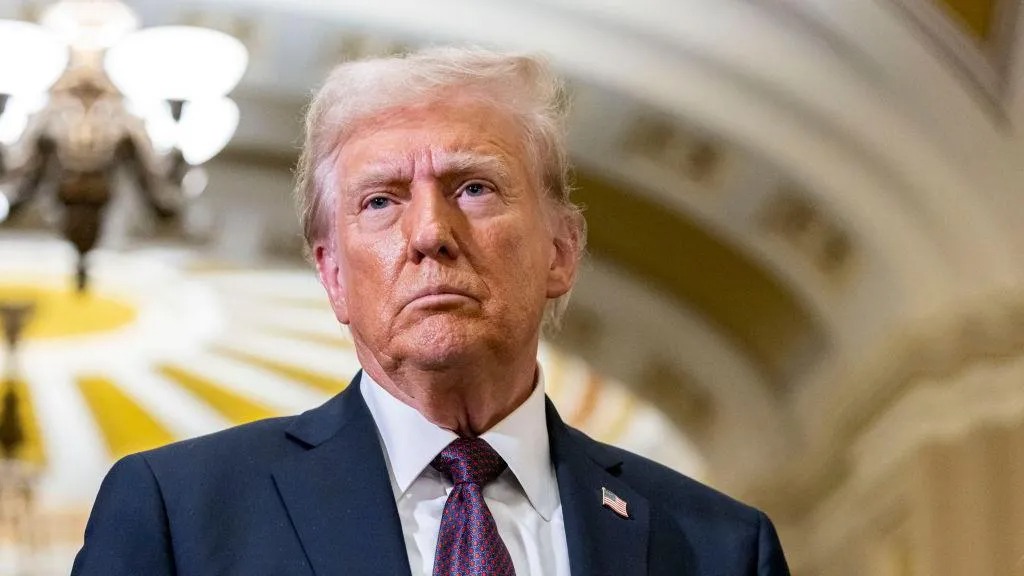
IMF Warns Trump Economic Policy Could Cause Global Disruption
The International Monetary Fund (IMF) has issued a stark warning that the economic policies proposed by President-elect Donald Trump could trigger significant global disruption. While measures like tariffs, tax cuts, and deregulation may provide a short-term boost to the US economy, the IMF cautions that these moves could ultimately harm both the US and the global economy.
In its latest twice-yearly forecast, the IMF predicts that the ripple effects of Trump’s policies could escalate trade tensions, disrupt supply chains, and lower investment worldwide.
Key Concerns About Trump’s Economic Agenda
The IMF’s report highlights several areas of concern about Trump’s economic policies:
1. Increased Tariffs and Trade Tensions
Trump has proposed imposing tariffs on several nations, including China, Mexico, Canada, and members of the BRICS bloc. A threatened 100% tariff on BRICS nations, should they introduce a rival currency to the US dollar, is particularly worrisome.
Such actions, the IMF warns, could distort global trade flows, disrupt supply chains, and depress international investment.
2. Short-Term Gains, Long-Term Risks
While the IMF acknowledges that policies like tax cuts and deregulation could stimulate the US economy in the short term, they warn of a potential inflationary boom followed by an economic bust.
This could weaken US Treasury bonds’ status as a global “safe asset.” Treasuries, often seen as one of the most secure investment options, might lose their appeal, shaking investor confidence worldwide.
3. Runaway Dollar and Emerging Market Risks
Cutting too much red tape on businesses could lead to a strengthened US dollar, which might attract investment away from emerging markets. This could stifle growth in developing economies, creating a domino effect of slower global growth.
Potential Impact on Global Growth
The IMF forecasts global growth of 3.3% in 2025 and 2026, below the historical average of 3.7%. It warns that policies under Trump’s administration could exacerbate this slowdown, especially if trade tensions escalate further.
Meanwhile, the World Bank has also echoed these concerns, predicting even lower global growth at 2.7% for 2025, marking one of the weakest economic performances since the Covid-19 pandemic.
Deportation and Workforce Implications
The IMF also flagged concerns about Trump’s immigration policies. His plan to deport illegal immigrants could permanently reduce potential economic output in the US while also driving up inflation. The absence of immigrant workers in key sectors could significantly disrupt labor markets and economic productivity.
IMF’s Historical Context on Trump Policies
The IMF’s warnings recall the trade war initiated during Trump’s previous presidency, which involved tit-for-tat tariffs between the US, China, and the EU. This time, Trump’s policies could further erode global trade stability and deepen economic uncertainty.
Broader Implications
- Investor Confidence:
The potential weakening of US Treasury bonds as a safe-haven asset could create ripple effects across global financial markets. - Emerging Markets Vulnerability:
A stronger dollar could divert capital away from emerging economies, slowing growth in developing nations. - Supply Chain Disruptions:
Tariffs and trade restrictions could worsen existing supply chain challenges, raising costs for businesses and consumers worldwide.
Conclusion: A Fragile Global Outlook
While Trump’s policies may boost the US economy in the short term, the IMF warns that they carry significant risks for both the US and the global economy. As the world braces for a potential shift in trade dynamics, the consequences of these policies could ripple far beyond America’s borders, creating an uncertain economic landscape for years to come.
External Link: BBC
Internal Link: Kenkou Land



